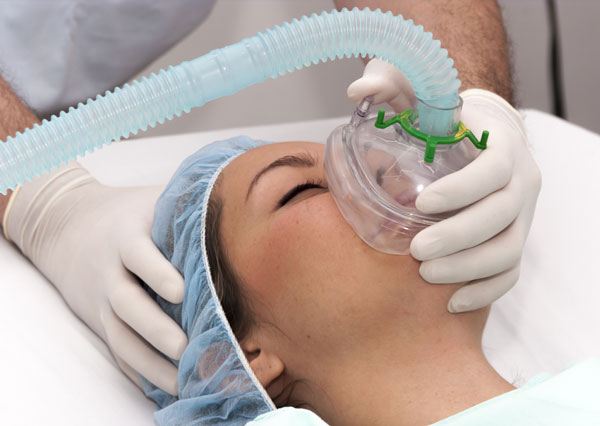For many people, the greatest concern when it comes to surgery is anesthesia. However, gaining a better understanding of anesthetics can also help alleviate these fears. Dr. Drielsma has partnered with Sydney anesthetists of the highest training, experience, and ethics. You can feel assured that the best in their field will guarantee the safest of anesthetic available.

Types of Plastic Surgery Anaesthetic
Local
Local anaesthesia prevents pain in a specific area requiring surgery. Dr. Drielsma injects a local anaesthetic into the treatment area. This numbs the area and wears off shortly after the procedure. During local anaesthesia, you are awake and aware of your surroundings. Minor skin surgery procedures use this type of anaesthesia.
Intravenous sedation anaesthesia
Also known as twilight sedation, This type of anaesthesia is only administered by a fully trained anaesthetist in an accredited hospital operating theatre. Your anaesthetist administers intravenous sedatives through a vein, possibly with other types of anaesthesia, such as local anaesthesia. Sedation includes a combination of medications that help prevent pain and anxiety associated with medical procedures. During sedation, you are awake but sleepy, and you won’t recall the procedure being performed.
General Anaesthesia
Under General Anaesthetic you are completely asleep. This type of anaesthesia is only administered by a fully trained anaesthetist in an accredited hospital operating theatre. Your anaesthetist controls your circulation and breathing. General anaesthesia prevents any pain or movement, and you won’t remember the procedure afterwards. Because of the control the anaesthetist has over your breathing, this is a very safe form of anaesthesia.
Complications of Plastic Surgery Anaesthetic
Regardless of the type of anaesthesia, equipment monitors your heart rate and other vital signs. Monitoring reduces the risk of complications.
The most common complication is nausea or vomiting. Making your anaesthetist aware of any concerns prior to your surgery is important. Administering medication reduces this risk. Before any surgery, you will be required to complete information about yourself and your medical history.
Depending on your surgery and the type of anaesthetic, you may be asked you to fast (restrict food and drink intake for a specific period) before the procedure. In the case of general anaesthesia, this is at least 6 hours.
Recovery from Plastic Surgery Anaesthetic
Local anaesthetic requires no recovery time. Recovery after sedation or general anaesthetic can take up to 24 hrs. The hospital and its staff will attend to all your needs and safety following your anaesthetic if you are staying overnight. Hospital medical and nursing staff will discharge you following a day only procedure if they are happy with your recovery. An accompanying person must escort you home and you must have a carer staying with you overnight following your surgery.
